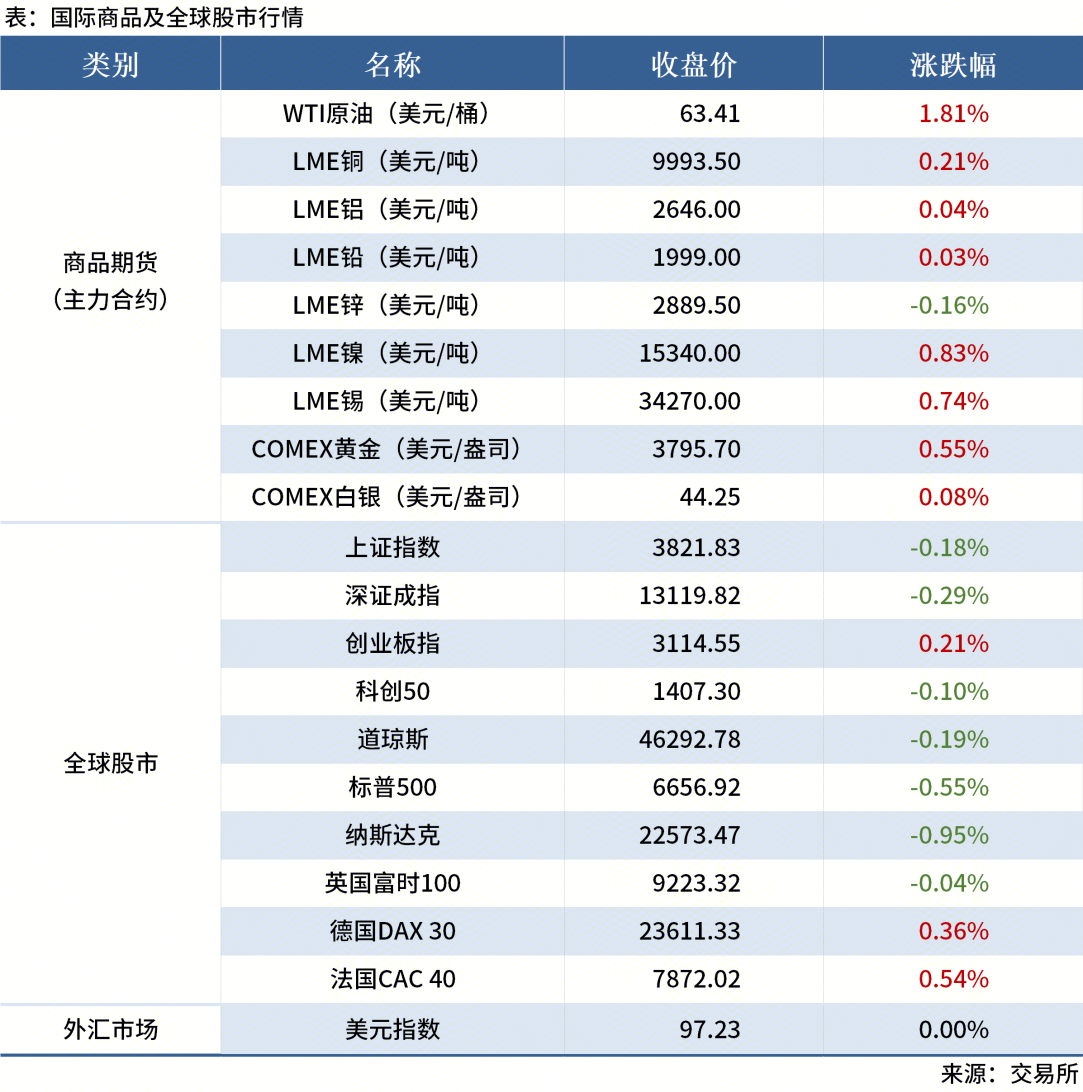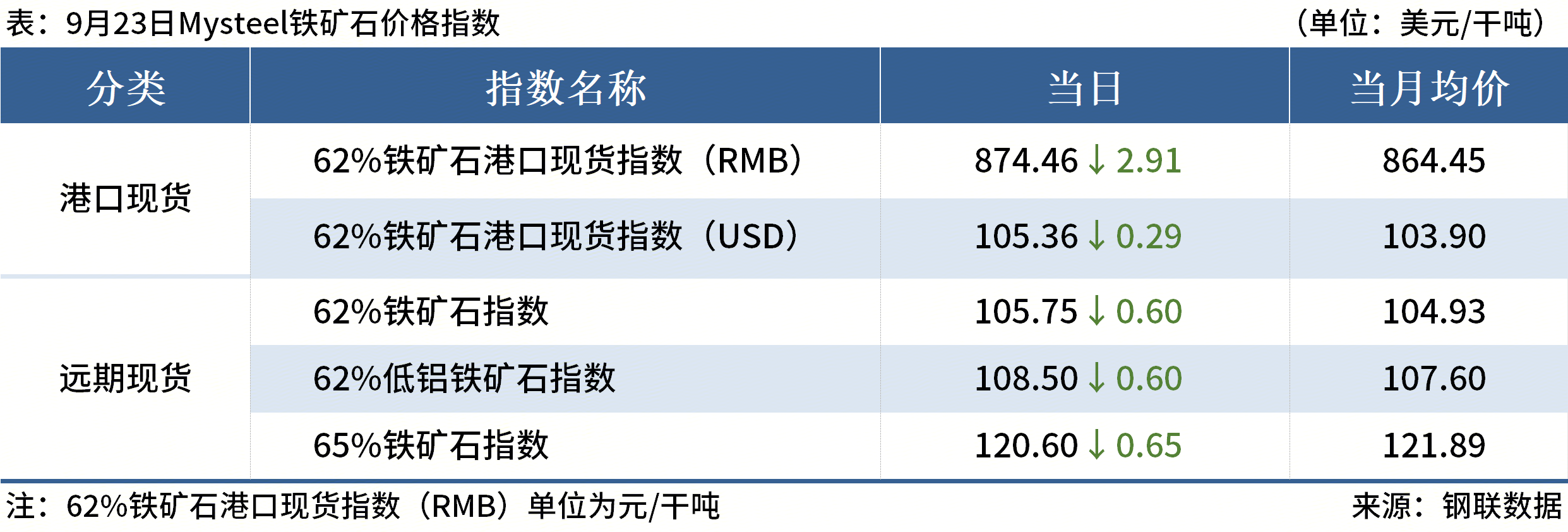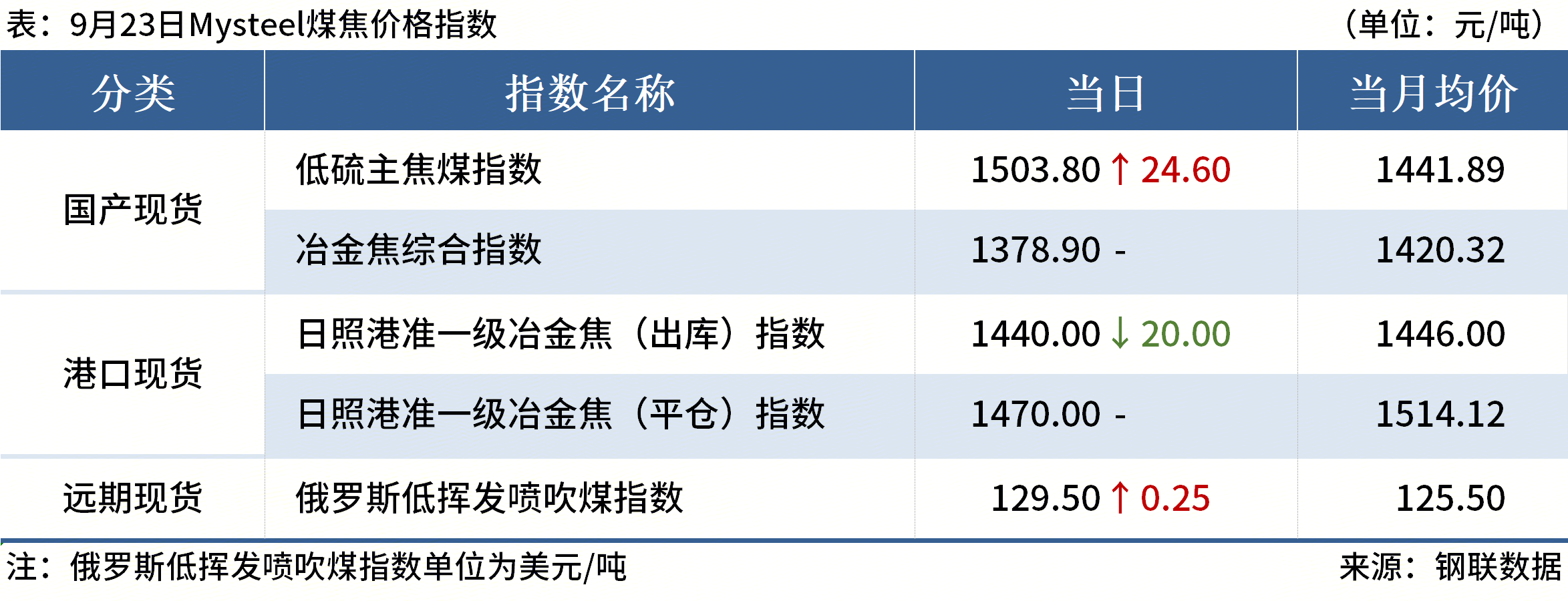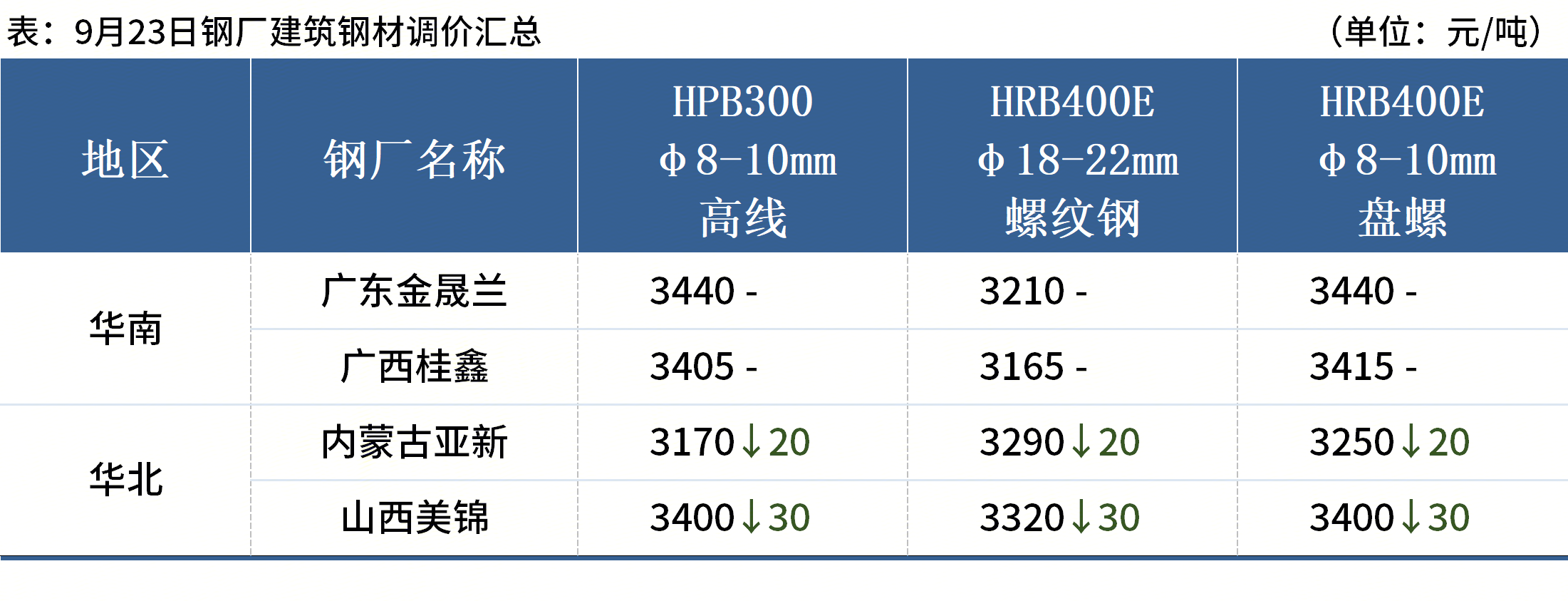South Korea's K-Steel bill is impacting our country's steel exports, and the three major coal import ports will shut down.
Category: Industry News
Time:2025-09-24
If South Korea's K-Steel bill is implemented, the products most likely to be hit hardest will be medium- and thick plates, as well as hot-rolled coils. Based on an average tariff rate of 30%, China's medium- and thick-plate exports to South Korea would lose their price advantage entirely, with annual export volumes expected to drop below 800,000 tons.

◎ If South Korea's K-steel bill is implemented, the products most likely to be hit hardest will be medium-to-thick plates and hot-rolled coils. Based on an average tariff rate of 30%, China's medium-to-thick plates would completely lose their price advantage in South Korea, with annual export volumes expected to drop below 800,000 tons. More details ➕
◎ According to the bilateral agreement between China and Mongolia, the three major import ports—Ganqimodu, Ceke, and Mandula—will be closed from October 1 to 7, 2025, resuming normal customs clearance on October 8. Statistics from Mysteel indicate that the seven-day closure of these three key ports during the 2025 Double Festival holiday period is expected to impact Mongolian coal imports by approximately 1.8756 million tons.
◎ Sha Steel's Changzhou, Jiangdu, and Wuxi bases have raised their scrap steel prices by 20 yuan/ton starting from September 24.
◎ Lecong Steel World Park, a key steel trading hub in Guangdong, announced that it will implement closed-loop management from 9:00 PM on September 23 to 12:00 AM on September 24. Details>>




◎ Wang Yi, Member of the Political Bureau of the CPC Central Committee and Foreign Minister, met with U.S. Congressman Smith and his delegation, who are visiting China, in Beijing. Both sides candidly and thoroughly exchanged views on further enhancing communication and exchanges, as well as promoting the stable, healthy, and sustainable development of China-U.S. relations.
◎ Minister of Industry and Information Technology Li Lecheng stated that during the "15th Five-Year Plan" period, efforts will be made to implement initiatives aimed at fostering emerging industries and cultivating new drivers of growth, while accelerating the development of several key emerging pillar industries. Additionally, a mechanism for increasing investment in future industries will be established, opening up new frontiers such as humanoid robots, brain-computer interfaces, the metaverse, and quantum information technologies, and creating a batch of pioneering pilot zones dedicated to these cutting-edge sectors.
◎ According to data released by the National Energy Administration, total electricity consumption across society reached 1.0154 trillion kilowatt-hours in August, representing a year-on-year increase of 5%. For two consecutive months—July and August—society's electricity usage exceeded 1 trillion kilowatt-hours.
◎ Domestic refined oil prices remain unchanged for the sixth time this year. The window for the next round of refined oil price adjustments opened at 24:00 on September 23. According to monitoring data from the National Development and Reform Commission's Price Monitoring Center, the adjustment amount during this pricing cycle was less than 50 yuan per ton, so gasoline and diesel prices will stay unchanged this time.
◎ Affected by Typhoon "Bilis", heavy to torrential rains, with localized extremely heavy rainfall, are expected from September 23 to 26 in eastern Fujian, central and southern Guangxi, Guangdong, and Hainan. The Ministry of Water Resources activated a Level IV emergency response for flood control in Fujian, Guangxi, and Hainan at 19:00 on September 23, while upgrading Guangdong's flood control emergency response from Level IV to Level III.
◎ The OECD released its Interim Economic Outlook report on the 23rd, projecting global economic growth of 3.2% in 2025—up 0.3 percentage points from the forecast made in June this year. In 2026, global economic growth is expected to slow to 2.9%, unchanged from the June projection.




◎ On September 23, national major port iron ore transactions totaled 1.791 million tons, an increase of 65.5% from the previous week; meanwhile, transactions of construction steel by 237 leading traders reached 92,000 tons, down 19.8% week-on-week.
◎ On September 23, the total port inventory of imported iron ore at China's 47 major ports reached 145.1337 million tons, an increase of 1.2349 million tons compared to last Monday. Meanwhile, the total inventory of imported iron ore at 45 key ports stood at 139.3097 million tons, up 1.2656 million tons from the previous week.
◎ From September 15 to 21, the total iron ore inventory at seven major ports in Australia and Brazil amounted to 12.17 million tons, a decrease of 821,000 tons compared to the previous week, reflecting a slight downward trend in stock levels.
◎ On September 23, the average cost for 76 independent electric arc furnace construction steel plants was 3,337 yuan/ton, unchanged from the previous day. Meanwhile, the average profit remained at a loss of 123 yuan/ton, with profits from off-peak electricity even lower, slipping by 25 yuan/ton.

◎ According to data from the General Administration of Customs, China's total exports of steel billets from January to August 2025 reached 9.2362 million tons, representing a year-on-year increase of 293.24%. Meanwhile, the country's total imports of steel billets amounted to 584,200 tons, marking a year-on-year decline of 62.30%.
◎ The 1450mm high-performance hot-rolled coil project of Minyuan Steel Group Co., Ltd. officially began production on September 23.
◎ The European Commission announced the final ruling on the second sunset review of anti-dumping measures imposed on malleable iron threaded pipes and fittings, as well as ductile iron, originating from China and Thailand.
Keywords: South Korea's K-Steel bill is impacting our country's steel exports, and the three major coal import ports will shut down.
Related Information
Company News
-
Chuangcai’s latest news: Trump puts further pressure on Iran, and coke prices see their first round of increase.
Time:2026-01-29
-
We warmly welcome UAE customers to visit our color-coated and galvanized steel plants.
Time:2026-01-27
-
Warmly celebrate that our Nepalese customer has successfully passed the inspection of all company products.
Time:2026-01-23
-
Chuangcai Group Co., Ltd. launches bright-finish galvanized steel sheets, leading the industry with advanced technology and superior quality.
Time:2026-01-14
-
Warm Celebration of the First Perfect Cooperation between Chuangcai Group Co., Ltd. and Azerbaijani Customers
Time:2025-12-16
-
Warmly celebrate the great success of Chuangcai Group Co., Ltd. at the Dubai exhibition.
Time:2025-12-02
-
Morning reading: The "14th Five-Year" Plan proposal clearly outlines the development direction and opportunities for the steel industry.
Time:2025-10-29
-
Special Meeting on Creative Color Group Corporation's Strategy for Managing Risks in the Indian Market
Time:2025-10-16
-
Warmly celebrate Chuangcai Group Co., Ltd.'s successful participation in Alibaba International's "Heroes Contest, Billion Battle to Fame" high-quality customer negotiation training.
Time:2025-09-15
-
Morning Reading: Iron ore prices rise above $105, first round of coke price reductions implemented
Time:2025-09-09
-
Warmly celebrate Shandong Longjian Board Industry Co., Ltd. for successfully passing the ISO9001 certification
Time:2025-09-05
-
Internal Company International Business Knowledge Collision: Wisdom Integration, Expanding Global Perspectives Together
Time:2025-09-02
-
Two groups of Indian clients visited the factory, securing 3.000 tons of new orders
Time:2025-08-15
-
What industries use galvanized steel sheets? What types are there?
Time:2025-01-08
-
What are the main applications of galvanized materials?
Time:2025-01-08
-
How to distinguish between galvanized sheet and cold-rolled sheet
Time:2025-01-08
-
The difference between galvanized steel sheet and cold-rolled steel sheet
Time:2025-01-08
Industry News
-
Chuangcai’s Interpretation: The Fed’s Future Policy Direction Still Holds Uncertainty—A Brief Analysis of “Interest Rate Cuts, Balance Sheet Reduction, and a Stable U.S. Dollar”
Time:2026-02-03
-
The global precious metals market plunges; China’s Hubei steel mills conduct winter stockpiling surveys.
Time:2026-02-02
-
Chuangcai Latest News: Supply Increase and Demand Decrease for China's Five Major Steel Products, Chief Outlook on February Steel Prices
Time:2026-01-30
-
China Iron and Steel Association: Production Status of Plate and Strip Products from Key Statistical Enterprises as of December 2025
Time:2026-01-28
-
ChuangCai Consulting: Global crude steel production is projected to reach 1849 million tons in 2025, with a general rise in international commodity prices.
Time:2026-01-26
-
What structural changes will occur in China’s steel demand in 2026?
Time:2026-01-23
-
In the fourth quarter of 2025, Fortescue Metals Group in Australia is expected to produce 49.8 million tons of iron ore, a 2% decrease year-on-year.
Time:2026-01-22
-
This year, the enthusiasm for winter stockpiling of construction steel in Shandong Province, China, has cooled down, and winter inventories will continue to decline.
Time:2026-01-21
-
In 2025, China exported 6,690 ships, a year-on-year increase of 16.2%.
Time:2026-01-19
-
International commodity prices are rising across the board, and several countries are urging their citizens to leave Iran.
Time:2026-01-15
-
China’s latest advisory news: Trump says he’s canceling all talks with Iranian officials; steel futures rise in overnight trading.
Time:2026-01-14
-
China Shagang’s scrap steel prices rise by 50 yuan; China Ansteel, Bensteel, and Linggang announce February price adjustments.
Time:2026-01-13
-
The State Council executive meeting deploys policies to boost domestic demand; Zhongtian Steel and Yonggang announce their latest price adjustments.
Time:2026-01-12
-
Pressure Eases, Resilience Remains—A Forecast of the Impact of Global Steel Trade Remedies on China in 2026
Time:2026-01-09
-
Steel has it all wrapped up at the Northeastern University EXP Building in Boston
Time:2026-01-08
-
Steel-Based Zero Energy Building (ZEB) Inaugurated in India
Time:2026-01-07
-
International bulk commodities generally surged, while black commodity futures fell during the night session.
Time:2026-01-06
-
As the price pattern shifts to a narrowing “W” formation and regional coordination strengthens, can the 2026 stainless steel market maintain steady progress?
Time:2026-01-06
-
January cold-rolled prices may trend weaker.
Time:2026-01-06
-
January Steel Market—Pre-Holiday Weak Realities Weigh Down Prices; Black-Steel Sector Awaits “Spring Surge”
Time:2025-12-29
-
Interpreting the Guidance of Import Coal Price Spreads on Domestic Coking Coal Price Volatility (Part 1)
Time:2025-12-29
-
2026 Steel Market Winter Stockpiling Outlook
Time:2025-12-25
-
The countdown for export licenses has begun! Can China’s galvanized sheet exports reach new highs again in 2026?
Time:2025-12-25
-
Li Qiang called for planning a batch of major projects and undertakings that can drive the overall situation.
Time:2025-12-23
-
Value Equilibrium—A 2026 Outlook for China’s Steel Market
Time:2025-12-22
-
The Ministry of Commerce responds to the management of steel export licenses, and Jiangsu’s winter stockpiling of scrap steel shrinks in scale.
Time:2025-12-20
-
2026 Steel Indirect Export Forecast
Time:2025-12-18
-
Analysis of the Impact of Implementing Export License Management for Seamless Pipe Products and Enterprises’ Response Strategies
Time:2025-12-18
-
Luo Tiejun calls for jointly breaking the cycle of involutionary competition; the chief analyst of sheet and strip forecasts January steel prices.
Time:2025-12-16
-
Multiple ministries are promoting measures to combat “involution”; interpretation of the management of steel export licenses.
Time:2025-12-16
-
The Federal Reserve cut interest rates by 25 basis points, while Zhongtian rebar prices were raised by 50 yuan.
Time:2025-12-11
-
During the 14th Five-Year Plan, China’s steel industry is exploring a path toward reducing output while improving quality.
Time:2025-12-11
-
Multiple regions have activated emergency responses for severe pollution, and the scale of maintenance at steel mills has expanded.
Time:2025-12-11
-
Summary of the Jiangsu Steel Industry Chain Access White List; Shortage of Building Materials Specifications in Yunnan and Guizhou
Time:2025-12-03
-
Steel mills are expanding the scale of production cuts and maintenance, and steel billets in Tangshan rose over the weekend.
Time:2025-12-01
-
The NDRC is promoting measures to address disorderly price competition; this week, steel supply has increased while demand has declined.
Time:2025-12-01
-
Iron ore prices surged above $105, and the yuan-to-dollar exchange rate hit a more than one-year high.
Time:2025-11-27
-
Xi Jinping Holds Telephone Conversation with Trump; International Commodity Prices Rise
Time:2025-11-27
-
Several Federal Reserve officials signaled potential interest rate cuts, while Shagang's scrap steel prices were lowered.
Time:2025-11-24
-
Black futures fell in the night session, with electric furnace steel mills posting a loss of 117 yuan per ton.
Time:2025-11-20
-
International commodity prices fell across the board, while five steel mills raised their prices.
Time:2025-11-18
-
More construction material steel plants have resumed production, and inspection teams will gradually begin operations in the Beijing-Tianjin-Hebei region.
Time:2025-11-17
-
Black futures fell during the night trading session, as the Simandou iron ore project will gradually ramp up its production capacity.
Time:2025-11-13
-
Xinjiang steel plants reduce production during winter maintenance, while the U.S. temporarily suspends its export control rules on penetrating technologies.
Time:2025-11-12
-
In December, Baowu Steel raised prices amid a general rise in international commodity markets.
Time:2025-11-12
-
Supply and demand for the five major steel products both declined, with electric furnaces incurring a loss of 167 yuan per ton of steel.
Time:2025-11-07
-
Steel prices remained stable overall, while coking coal futures rose by more than 1%.
Time:2025-11-06
-
The Drivers Behind China's High Growth in Steel Exports and the Resulting Structural Changes
Time:2025-11-05
-
Morning Reading: 84 New Enterprises Proposed for Entry into Scrap Steel Processing, Baosteel Adjusts Production Capacity Goals
Time:2025-11-04
-
Morning Reading: The Ministry of Commerce Highlights the Consensus Reached in China-U.S. Economic and Trade Talks, While 6 Steel Mills Raise Prices
Time:2025-10-31
-
Morning Read: China-U.S. Leaders to Hold Meeting, Fed Cuts Interest Rate by 25 Basis Points
Time:2025-10-30
-
Morning Read: "One Line, One Bureau, One Meeting" Makes a Strong Statement—Black Futures Turn Positive in Overnight Trading
Time:2025-10-28
-
Morning Read: China and the U.S. Reach Preliminary Consensus; Draft Opinions Sought on New Steel Capacity Replacement Plans
Time:2025-10-27
-
Morning Read: International commodity prices surged across the board, while supply and demand for the five major steel products both increased.
Time:2025-10-24
-
In the third quarter of 2025, Fortescue's iron ore production reached 50.8 million tons, representing a year-on-year increase of 6%.
Time:2025-10-23
-
Steel prices remain stagnant as the market awaits a breakthrough in macroeconomic conditions.
Time:2025-10-22
-
Morning Reading: China and the U.S. Agree to Hold a New Round of Economic and Trade Consultations; Steel Mills Reduce Production and Conduct Maintenance Inspections
Time:2025-10-20
-
Morning Reading: Sichuan's Steel Industry Advances Measures to Combat "Involution," While Several Steel Mills in Northern China Undertake Maintenance Overhauls.
Time:2025-10-16
-
Morning Reading: China Responds to U.S. Threat of Additional Tariffs on China, October North-to-South Steel Material Survey
Time:2025-10-13
-
Morning Reading: Two Departments Take Action to Address Unregulated Price Competition, Black Commodity Futures Turn Positive in Overnight Trading
Time:2025-10-10
-
Morning Reading: Steel inventories surged by 1.28 million tons during the holiday period; summary of performance for black commodity sectors
Time:2025-10-09
-
Morning reading: The State-owned Assets Supervision and Administration Commission urges central enterprises to take the lead in "fighting internal involution," as rebar prices fall below 3,100.
Time:2025-09-28
-
Morning Reading: Ministry of Commerce Counterattacks Mexico's China-Related Measures; Supply and Demand Both Rise for Five Major Steel Products
Time:2025-09-26
-
After the National Day holiday, the price of hot-rolled strip steel in China may rise first and then decline
Time:2025-09-25
-
South Korea's K-Steel bill is impacting our country's steel exports, and the three major coal import ports will shut down.
Time:2025-09-24
-
Black Metal Regular Meeting: This week, the steel market showed mixed trends, while raw materials may remain relatively strong.
Time:2025-09-23
-
Midday Report: Steel prices mainly rose, with coking coal futures climbing more than 5%.
Time:2025-09-16
-
A Brief Analysis of Profit Contraction Pressure on Domestic Tinplate Manufacturers
Time:2025-09-15
-
Afternoon Report: Localized Steel Price Increase, Iron Ore Futures Drop Over 1%
Time:2025-09-11
-
Morning reading: Latest survey on steel mill maintenance impact, structural steel production capacity adjustment enters a stable period
Time:2025-09-08
-
Morning reading: Tangshan Steel Plant resumes production in batches, Trump signs US-Japan trade agreement
Time:2025-09-05
-
Morning reading: Black futures declined in the night session, construction sites in Beijing-Tianjin-Hebei gradually resume work
Time:2025-09-04
-
The Breakthrough Path for Steel Enterprises under the Transformation and Upgrading of the Construction Industry
Time:2025-09-03
-
The steel market still has room to decline in September
Time:2025-09-02
-
Anti-dumping situation of foreign steel products against China from January to August
Time:2025-09-01
-
The European Union plans to eliminate tariffs on American industrial goods to alleviate the impact of car tariffs.
Time:2025-08-29
-
Reference | Interpretation of the second half market based on silicon steel supply and demand
Time:2025-08-28
-
WEEKLY SUMMARY: China's steel market slides on weak fundamentals
Time:2025-08-25
-
WEEKLY: Chinese mills' steel stocks edge down
Time:2025-08-22
-
Việt Nam imposes anti-dumping duties on Chinese and South Korean coated steel
Time:2025-08-19
-
Vietnam imposes AD duties on galvanized steel from China, South Korea
Time:2025-08-19
-
Detailed explanation of color-coated steel sheet types, colors, and applications
Time:2025-02-27
-
What is cold-rolled sheet material? A comprehensive analysis of the characteristics and applications of cold-rolled sheet.
Time:2025-01-08
-
Advantages and Applications of Cold-Rolled Sheet
Time:2025-01-08
-
Applications and characteristics of color-coated steel sheets
Time:2025-01-08
-
Detailed explanation of the function and advantages of color-coated steel plate
Time:2025-01-08
-
What thickness and width of stainless steel do you require?
Time:2025-01-08








